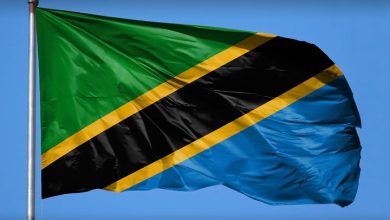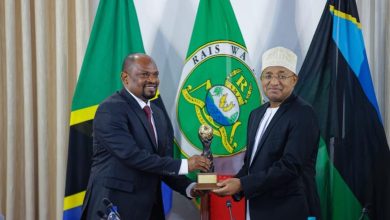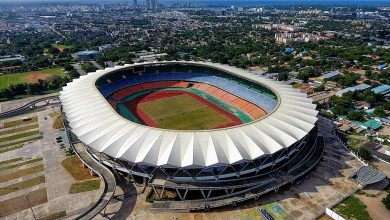Diplomas not enough, TZ needs digital fluency by 2050

DAR ES SALAAM: IN early July 2025, the National Examinations Council of Tanzania (NECTA) announced an impressive outcome for the Advanced Certificate of Secondary Education Examination (ACSEE).
Out of the registered candidates, 125,779 school candidates passed the exams, representing a pass rate of 99.95 per cent of those who received results.
This is a slight increase compared to last year’s pass rate of 99.92 per cent, with only 68 candidates (0.05 per cent) failing this year.
The gender balance in these results is striking, 62,053 female and 64,082 male students both achieved the same outstanding success rate of 99.95 per cent.
NECTA Statistics show that a total of 125,375 candidates (99.62 per cent) achieved good grades (Division I to III), with 61,120 candidates (48.57 per cent) attaining Division I and 49,385 (39.24 per cent) achieving Division II.
This remarkable pass rate reflects widespread diligence from students, educators and institutions.
It underlines the effectiveness of recent investments in educational infrastructure and the commitment to academic standards. Yet, experts caution that numbers alone don’t paint the full picture.
A commentary in ‘The Guardian’ raised concerns that such soaring results may obscure deeper issues, questioning whether the system is nurturing true understanding or merely teaching to test.
While general performance soared, Tanzania’s aspirations under Vision 2050 rely heavily on excelling in STEM (Science, Technology, Engineering, Mathematics) education. Current trends suggest a worrying downward shift.
NECTA’s 2025 data shows that among students combining Physics, Advanced Mathematics and Computer Science (PMC), the proportion achieving Division One dropped sharply from 62.12 per cent in 2024 to 53.80 per cent in 2025.
Pass rates for other STEM combinations like PCM and PCB also declined by 6.39 per cent and 1.62 per cent, respectively.
This slide raises alarm given that Vision 2050 targets 70 per cent digital literacy, yet only about 34 per cent of Tanzanians currently reach basic technological proficiency, with deeper digital literacy (coding, analytics, problem-solving) likely far lower.
Similarly, only 18 per cent of graduates are in science-related fields, which is less than half of the national goal of 40 per cent.
If unchecked, this trend jeopardises the nation’s ability to produce the innovators and technologists Vision 2050 envisions.
Underlying the STEM gap are critical resource shortages. Over 70 per cent of Tanzanian schools lack functional science laboratories, severely hampering students’ ability to engage in practical, experiential learning, an obvious advantage in urban schools but nearly inaccessible in rural areas.
However, innovative solutions are emerging. Digital learning platforms like Ekima, which offer immersive 3D simulations, real-world visual content, and interactive modules, are transforming access to practical STEM learning.
Such tools allow students, regardless of location, to experience simulations of labs and experiments, closing the opportunity divide.
Aligned with Vision 2050’s drive toward a knowledge-based economy, a partnership between KOICA and UNICEF, announced in July 2025, is making tangible progress.
ALSO READ: NECTA warns against fraud as Form IV exams begin
The 5.8 million US dollars initiative aims to construct and equip science and ICT labs in 13 secondary schools across Dodoma and Simiyu regions.
It also includes STEM teacher training and efforts to empower female educators as role models.
This collaboration exemplifies the kind of systemic support needed: modern facilities, skilled teachers and inclusive access, critical for making STEM education equitable and impactful.
Tanzania’s nearly perfect ACSEE pass rates in 2025 are indeed praiseworthy.
They represent effective educational delivery and the determination of learners across the nation.
But to translate academic success into national development, the focus must shift toward building a generation adept in innovation, critical thinking and technological fluency.
Practical infrastructure, immersive digital tools, and strategic investments in STEM education are not luxuries; they are essential levers for actualising Vision 2050.
Without them, certificates risk becoming mere tokens rather than foundations for growth.
Tanzania’s journey requires balancing the twin imperatives of academic excellence and functional capability.
If that balance is struck, today’s Division I graduates could become tomorrow’s innovators and leaders, realising a future where education transforms into sustainable development.
Vision 2050 emphasizes leveraging science, technology, and education to drive Tanzania’s socio-economic transformation.
It envisions widespread adoption of disruptive technologies, inclusive STEM education, innovation hubs, and lifelong learning.
By prioritising quality education, digital literacy, and skills development, Tanzania aims to create a knowledgeable, innovative, and globally competitive society by 2050.





